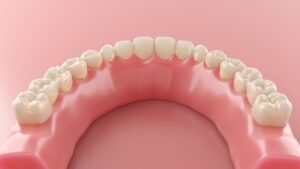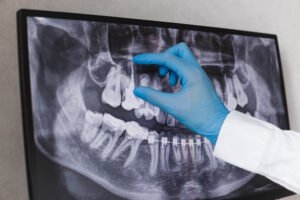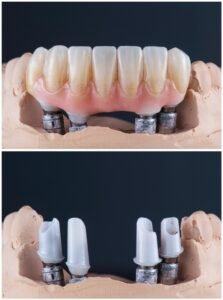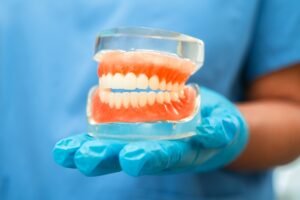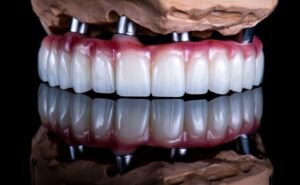Upper denture implants are a secure and long-term solution for replacing missing teeth. These implants offer stability and improved functionality for individuals with missing upper teeth.
If you are considering upper denture implants, it is important to understand the benefits, process, and potential outcomes. From enhancing your smile to restoring your ability to eat and speak comfortably, upper denture implants can greatly improve your quality of life.
In this comprehensive guide, we will explore everything you need to know about upper denture implants, including the procedure, maintenance, cost, and expected results. By the end, you will have a clear understanding of whether upper denture implants are the right choice for you.
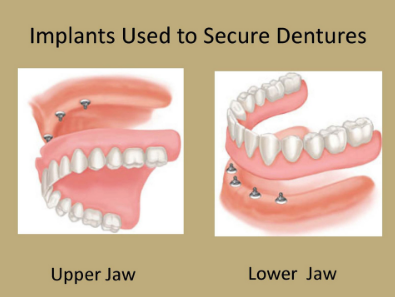
Credit: mengdental.com
What Are Upper Denture Implants?
Upper denture implants are a permanent solution for missing teeth. These implants are surgically placed in the jawbone, providing a stable foundation for replacement teeth. There are two types of upper denture implants: endosteal and subperiosteal implants. Endosteal implants are placed directly into the jawbone, while subperiosteal implants are placed on top of the jawbone beneath the gum tissue.
One of the main benefits of upper denture implants is improved stability and functionality compared to traditional dentures. They also help prevent bone loss in the jaw and maintain facial structure. Additionally, upper denture implants look and feel natural, allowing individuals to eat, speak, and smile with confidence. Overall, upper denture implants offer a long-lasting and reliable solution for missing teeth.
Are Upper Denture Implants Right For You?
Candidates for upper denture implants must have healthy gums and adequate bone structure. Considerations before getting implants include long-term commitment to oral care and potential financial investment.
Ensure to consult with a qualified dentist to determine if upper denture implants are suitable for your individual needs. Proper oral hygiene is crucial for the success and longevity of the implants.
The Upper Denture Implant Procedure
The upper denture implant procedure involves securely attaching a set of dentures to the upper jaw using dental implants. This innovative solution enhances stability and comfort, restoring the ability to eat and speak with confidence. The process typically includes a consultation, implant placement, and the attachment of the custom dentures, yielding natural-looking results and improved oral function.
| The upper denture implant procedure typically involves several key steps. |
| During the initial consultation, your dentist will discuss treatment options and create a personalized plan. |
| The dental implant placement is carried out in a series of appointments, ensuring precise positioning. |
| Following the implant placement, there is a healing period to allow for osseointegration. |
| Once the implants have healed, the next step involves designing and placing the custom upper denture. |
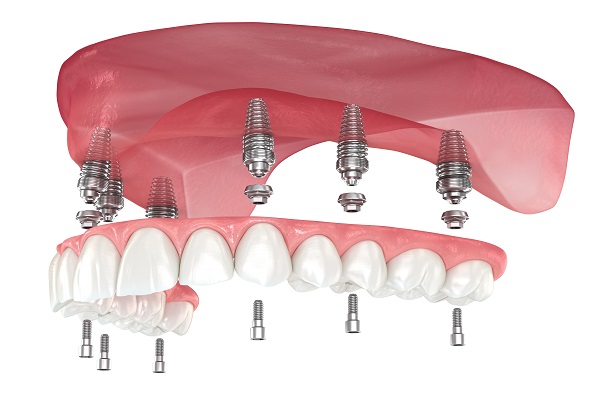
Credit: rowleyfamilydental.com
Recovering From Upper Denture Implant Surgery
After upper denture implant surgery, it is common to experience pain and swelling. These discomforts can be managed by following the post-operative care instructions provided by your dentist. Oral hygiene is crucial during recovery to prevent any infections. Stick to a soft food diet and avoid hard or sticky foods to support the healing process. Attend all scheduled follow-up appointments to ensure that the implants are integrating properly and to address any concerns. Remember to follow your dentist’s advice for a smooth recovery.
Caring For Upper Denture Implants
Properly caring for your upper denture implants is crucial to maintaining good oral hygiene. Regular dental check-ups are recommended to ensure that your implants are in good condition and functioning correctly. During these check-ups, your dentist will clean and adjust your upper denture to ensure a proper fit and comfortable wear. This will help prevent any potential denture-related issues from arising. It is important to handle any denture-related issues promptly to avoid further complications. By following these guidelines and maintaining good oral hygiene, you can keep your upper denture implants in excellent condition and enjoy a healthy smile.
Possible Complications And Risks
Possible complications and risks associated with upper denture implants can include infection, bone loss, implant failure, and allergic reactions. Infection is a common concern after the implant procedure. It can occur if proper oral hygiene is not maintained or if there is an underlying dental condition. Regular cleaning and following the dentist’s instructions are crucial in preventing infection.
Bone loss is another potential complication. Proper osseointegration of the implant is important to avoid bone loss. The dentist will evaluate the bone density and quality before the implant procedure to minimize the risk.
Implant failure can happen if the implant does not fuse correctly with the jawbone or if there is excessive pressure on the implant. Following a proper healing process and avoiding activities that put undue stress on the implant can help reduce the chances of failure.
Allergic reactions may occur in rare cases. It is important to inform the dentist about any known allergies. Using biocompatible materials and conducting allergy tests can help minimize the risk.
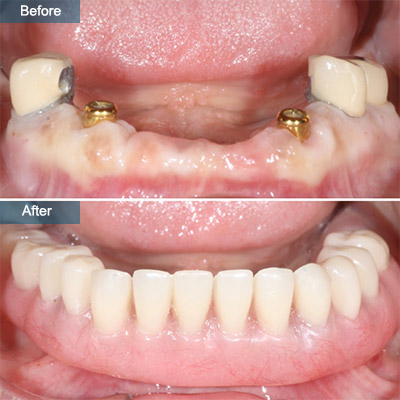
Credit: www.dentistinbrooklyn.com
Frequently Asked Questions On Upper Denture Implants
What Are Upper Denture Implants?
Upper denture implants are a type of dental procedure where artificial teeth are attached to implants that are surgically placed in the upper jaw. They provide a more stable and natural-looking solution for those who have lost their upper teeth.
Implants can improve chewing function, speech, and overall oral health.
How Long Do Upper Denture Implants Last?
Upper denture implants can last for many years with proper care and regular dental check-ups. On average, they can last between 10 and 15 years. However, factors such as oral hygiene, jawbone health, and lifestyle habits can influence their longevity.
Regular maintenance and adjustments by a dentist can help prolong their lifespan.
What Are The Benefits Of Upper Denture Implants?
Upper denture implants offer several benefits over traditional dentures. They provide a more secure fit, enhancing comfort and stability when eating or speaking. They also help preserve jawbone structure, preventing bone loss. Additionally, implants give a more natural-looking appearance and eliminate the need for messy adhesives.
How Painful Is The Upper Denture Implants Procedure?
The upper denture implants procedure is typically performed under local anesthesia, minimizing any pain or discomfort during the surgery. After the procedure, patients may experience minor discomfort and swelling, which can be managed with pain medication as prescribed by the dentist.
Most individuals find any discomfort to be temporary and well worth the long-term benefits of the implants.
Conclusion
To sum up, considering upper denture implants can greatly improve the quality of life for individuals experiencing tooth loss. With advanced technology and skilled dental professionals, the process is now efficient and comfortable. By opting for upper denture implants, individuals can regain their confidence and enjoy the benefits of a secure, natural-looking smile.

